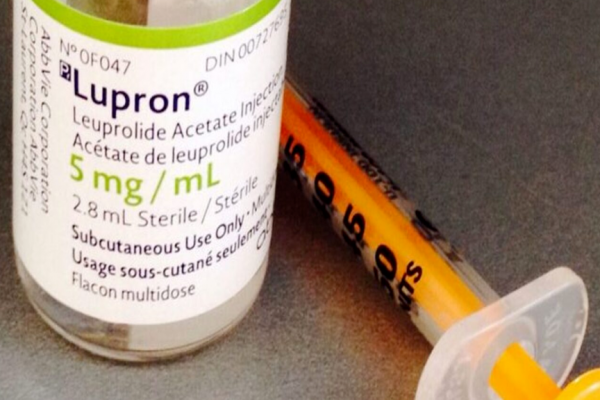The Society for Evidence-based Gender Medicine
Anyone who has been following the debates on medical gender transition of young people will have heard of the Society for Evidence-based Gender Medicine. Since 2019 this dedicated group of professionals has been challenging the shoddy science used to support the affirmative model of care. Whenever someone rattles off a list of the professional groups that have endorsed the affirmative model, the Society responds with the question, “Where is the evidence for their position?”
SEGM was founded by William Malone, MD, an endocrinologist who practices in Twin Falls, Idaho. Dr. Malone describes the origins of SEGM in an interview with Benjamin Boyce. In 2018 he attended a presentation at the Endocrine Society conference on its new guidelines for the treatment of gender dysphoria. He noticed something was off. Endocrine Society presentations usually took the form of a lively exchange where all the pros and cons of a new treatment were discussed with lots of questions. At the gender dysphoria presentation, there was only one view presented and questions were discouraged.
SEGM Uncovers Lack of Evidence for Medical Interventions
Dr. Malone was particularly concerned about the new recommendations on hormone therapy for gender-questioning children and adolescents, which represented a major change from past practice. He thought that there must have been some major new studies to justify this change, so he started to do his own research. What he found is summarized on the first page of the SEGM website. It states:
“The medical pathway of the Gender-Affirmative model … is based on a single Dutch study”:
- 55 subjects (only 40 with complete data)
- 100% had childhood-onset gender dysphoria (no adolescent-onset gender dysphoria cases)
- Only 1.5 year post-surgery follow-up at an average age of under 21
- No control group
- No physical health effects evaluation
- One adolescent died as a result of post-operative complications. Several others could not pursue treatment due to new health issues arising following hormonal administration
- Unchanged or worsening gender dysphoria and body image difficulties while on puberty blockers, especially among natal adolescent females
SEGM’s Dr. Malone began to speak out on social media and he was joined by an international group of professionals who shared his concerns.
Dr. Julia Mason is a pediatrician from Oregon. She began to encounter gender dysphoric children and adolescents in her practice, most with other neurodevelopmental or psychiatric issues.
Marcus Evans is a psychotherapist from the United Kingdom. He resigned as a governor of the Tavistock Clinic, the only National Health Service clinic in Britain which treated gender dysphoria in children and adolescents, because of this concerns that the clinic was starting young people on medical transition without proper psychological assessment.
Other clinical advisors include Robert D’Angelo, a psychiatrist practicing in Australia, Stella O’Malley from Ireland, Avi Ring from Norway and Sven Román from Sweden.
SEGM Goal – Safe Medical Care for Gender-questioning Young People
The goal of the Society for Evidence-based Gender Medicine is to promote the principles of evidence-based medicine in the treatment of gender dysphoria. This is a widely used definition of the term by DL Sackett:
The practice of evidence-based medicine means integrating individual clinical expertise with the best available external clinical evidence from systematic research.
Practicing evidence-based medicine involves not only reading the most current studies but looking at them critically. Not all studies are created equal. A peer-reviewed study is simply one that meets the minimum standards for publication in a professional journal. Sometimes peer review can miss serious errors. More often, the study was properly done but only provides weak evidence for its conclusions.
Doctors and scientists learn how to read studies critically and assess whether they are strong or weak. You need to look beyond the conclusions in the abstract and examine the way the data in the study was gathered and analyzed to see how much support it actually provides for the conclusion.
The members of the society have been applying their critical skills to the studies on gender medicine and they have found that even the best studies are not very good. A recent post on their website explains:
Studies in the field of gender medicine are notoriously unreliable, plagued by small samples, lack of controls, confounding, and bias. This is true for even the “best” studies in the field, such as the “Dutch study”— the foundation of treating gender dysphoric youth with hormones and surgery. While the Dutch protocol showed some positive results in the Netherlands, it could not be replicated in the world’s biggest pediatric gender clinic, the UK’s GIDS. Other studies, many making headlines, suffer from even more serious biases, limitations, and downright erroneous data analyses. Gender medicine does not have a monopoly on bad science, but if poor research were an Olympic event, it would arguably be a favorite to win the gold.
SEGM Corrects Flawed Research
The members of the society achieved an early success in 2020 when the American Journal of Psychiatry issued a correction of a major study on the benefits of “gender-affirming” surgery. The study examined the health records of Swedish patients diagnosed with gender dysphoria to try to determine if hormonal or surgical treatment improved their mental health. It measured mental health by counting the number of mental health visits, psychiatric medication prescriptions and hospitalizations following suicide attempts. The original study found that there was a statistically significant reduction in use of mental health services following surgery. The study was widely reported in the mass media as proof that gender affirming surgery led to improved mental health.
However, there were major errors in the study’s methodology and doctors and researchers, including some SEGM advisors, wrote letters to the editor pointing them out. One obvious flaw was that the study did not provide a control group by comparing patients who do did not receive surgery with those who had. The editors of the journal requested a reanalysis of the data which found that when these two groups of patients were compared, there was no statistically significant evidence of benefit from surgery. The AJP published a correction, which withdrew the main conclusion of the study, but this correction did not receive the publicity that the media gave to the original study.
Thankfully, some media has started to take notice. Members of SEGM are regularly quoted in Medscape, a large circulation medical publication, and the comments from professionals usually support the society’s work.
SEGM Resources Challenging the Current Approach
SEGM is continuing to build up resources to challenge the current affirmation only dogma. It has compiled a list of studies on the treatment of gender dysphoric youth along with summaries and critical evaluations of key studies.
The Society submitted an amicus (friend of the court) brief in an Arizona case on the issue of whether the state Medicaid program is required to cover a double mastectomy for a gender dysphoric teen. The brief makes a devastating case that there is little or no evidence that gender affirming medical treatments for adolescents are “medically necessary” and considerable reason to believe that they are harmful.
Here in Canada, SEGM submitted a brief to the Senate committee that was going to study the bill to amend the Criminal Code to ban conversion therapy. The brief likely went unread because the bill died on the order paper the government called an election. The same bill was pushed through without study after the election. However, the brief will remain on the public record and when the inevitable medical scandal erupts, our political leaders will not be able to plead ignorance.
Contributed to CGR by @JustDad7




